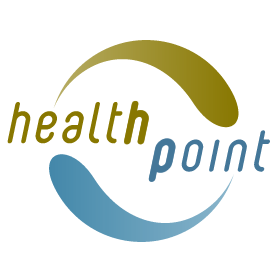Central Auckland, East Auckland, North Auckland, South Auckland, West Auckland > Private Hospitals & Specialists >
Ultrasound Professionals
Private Service, Radiology, Pregnancy Ultrasound
Today
9:30 AM to 5:30 PM.
Description
UP Ultrasound Professionals is a specialist ultrasound practice providing high-quality, personalised care by our friendly, highly trained staff using state-of-the-art technology.
We focus on the community’s health needs, offering flexible hours, weekends, and urgent appointments for the convenience of our patients.
We offer a comprehensive range of ultrasound services:
- MSK & Nerve Ultrasound (Shoulder / Elbow / Wrist / Hand / Leg / Knee / Ankle / Foot / Limb)
- Vascular Ultrasound (Aorta / Leg DVT / Arm DVT / Carotid Doppler IMT / Renal Artery Doppler)
- Abdominal & Renal (Abdomen / Liver / Gallbladder / Renal / Kidney / Pelvis / Transvaginal)
- Paediatric Ultrasound (Abdomen / Appendix / Renal / Hip)
- Small Parts (Thyroid / Soft Tissue / Comprehensive Neck / Breast / Testis / Hernia)
- Obstetrics Ultrasound (Dating Scan / Nuchal / Anatomy / Growth / Twin Pregnancy / Gender)
What is Radiology?
- diagnose disease states, such as cancer or heart disease
- show the extent of injury to body structures
- to aid in interventional procedures, such as angiography.
The radiologist may use different methods such as, X-ray, Computed Tomography (CT), Magnetic Resonance Imaging (MRI) and Ultrasound as well as some other specialised types of radiological imaging.
- Sonographers are MRTs (Medical Radiation Technologists) who perform your ultrasound examinations.
- Radiologists are specialist doctors who read and understand your films. They interpret the results of the images and send them to your doctor.
Staff
David Zou - Director: David started his diagnostic imaging career in 1995 after completing his medical degree from Jinzhou Medical School in China.
David has been working in various general hospitals and private radiology services for over 20 years in New Zealand and Australia. He is an appointed medical educator with great experience with training new sonographers.
David has a heart to help others and believes that every scan he does will have a positive impact on the health and wellbeing of his patients. Read more here
Ages
Child / Tamariki, Youth / Rangatahi, Adult / Pakeke, Older adult / Kaumātua
How do I access this service?
Referral
A referral is required for all scans. We accept referrals from all NZ based and registered Medical Physicians and Specialists, Sport and Exercise Physicians, GPs, Chiropractors, Physiotherapists, Osteopaths, Podiatrists, Nurse Practitioners, LMCs and Midwives.
Make an appointment
Referral Expectations
Fees and Charges Categorisation
Fees apply
Fees and Charges Description
Click on the link for a list of our fees
We are a Southern Cross Affiliated Provider.
Free ultrasound scan under ACC (Conditions Apply).
Hours
9:30 AM to 5:30 PM.
| Mon – Fri | 9:30 AM – 5:30 PM |
|---|---|
| Sat | 9:30 AM – 12:30 PM |
Closed public holidays
Public Holidays: Closed Good Friday (18 Apr), Easter Sunday (20 Apr), Easter Monday (21 Apr), ANZAC Day (25 Apr), King's Birthday (2 Jun), Matariki (20 Jun), Labour Day (27 Oct), Auckland Anniversary (26 Jan), Waitangi Day (6 Feb).
Languages Spoken
English, Mandarin Chinese
Procedures / Treatments
In ultrasound, a beam of sound at a very high frequency (that cannot be heard) is sent into the body from a small vibrating crystal in a hand-held scanner head. When the beam meets a surface between tissues of different density, echoes of the sound beam are sent back into the scanner head. The time between sending the sound and receiving the echo back is fed into a computer, which in turn creates an image that is projected on a television screen. Ultrasound is a very safe type of imaging; this is why it is so widely used during pregnancy. Doppler ultrasound A Doppler study is a noninvasive test that can be used to evaluate blood flow by bouncing high-frequency sound waves (ultrasound) off red blood cells. The Doppler Effect is a change in the frequency of sound waves caused by moving objects. A Doppler study can estimate how fast blood flows by measuring the rate of change in its pitch (frequency). A Doppler study can help diagnose bloody clots, heart and leg valve problems and blocked or narrowed arteries. What to expect? After lying down, the area to be examined will be exposed. Generally a contact gel will be used between the scanner head and skin. The scanner head is then pressed against your skin and moved around and over the area to be examined. At the same time the internal images will appear onto a screen.
In ultrasound, a beam of sound at a very high frequency (that cannot be heard) is sent into the body from a small vibrating crystal in a hand-held scanner head. When the beam meets a surface between tissues of different density, echoes of the sound beam are sent back into the scanner head. The time between sending the sound and receiving the echo back is fed into a computer, which in turn creates an image that is projected on a television screen. Ultrasound is a very safe type of imaging; this is why it is so widely used during pregnancy. Doppler ultrasound A Doppler study is a noninvasive test that can be used to evaluate blood flow by bouncing high-frequency sound waves (ultrasound) off red blood cells. The Doppler Effect is a change in the frequency of sound waves caused by moving objects. A Doppler study can estimate how fast blood flows by measuring the rate of change in its pitch (frequency). A Doppler study can help diagnose bloody clots, heart and leg valve problems and blocked or narrowed arteries. What to expect? After lying down, the area to be examined will be exposed. Generally a contact gel will be used between the scanner head and skin. The scanner head is then pressed against your skin and moved around and over the area to be examined. At the same time the internal images will appear onto a screen.
In ultrasound, a beam of sound at a very high frequency (that cannot be heard) is sent into the body from a small vibrating crystal in a hand-held scanner head. When the beam meets a surface between tissues of different density, echoes of the sound beam are sent back into the scanner head. The time between sending the sound and receiving the echo back is fed into a computer, which in turn creates an image that is projected on a television screen. Ultrasound is a very safe type of imaging; this is why it is so widely used during pregnancy.
Doppler ultrasound
A Doppler study is a noninvasive test that can be used to evaluate blood flow by bouncing high-frequency sound waves (ultrasound) off red blood cells. The Doppler Effect is a change in the frequency of sound waves caused by moving objects. A Doppler study can estimate how fast blood flows by measuring the rate of change in its pitch (frequency). A Doppler study can help diagnose bloody clots, heart and leg valve problems and blocked or narrowed arteries.
What to expect?
After lying down, the area to be examined will be exposed. Generally a contact gel will be used between the scanner head and skin. The scanner head is then pressed against your skin and moved around and over the area to be examined. At the same time the internal images will appear onto a screen.
Disability Assistance
Mobility parking space, Wheelchair access, Wheelchair accessible toilet
Online Booking URL
Public Transport
The Auckland Transport website is a good resource to plan your public transport options.
Parking
Free patient parking is available at both locations
Pharmacy
Find your nearest pharmacy here
Website
Contact Details
212 Dairy Flat Highway, Albany, Auckland
North Auckland
9:30 AM to 5:30 PM.
-
Phone
(09) 942 4940
-
Fax
(09) 942 4941
Email
Website
205 Great South Road, Greenlane, Auckland
Central Auckland
9:30 AM to 5:30 PM.
-
Phone
(09) 942 4940
-
Fax
(09) 942 4941
Email
Website
Was this page helpful?
This page was last updated at 11:29AM on March 17, 2025. This information is reviewed and edited by Ultrasound Professionals.

